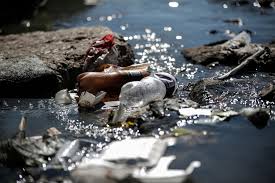South Africa: A Closer Look at Littering

South Africa, a country of awe-inspiring landscapes, diverse cultures, and a rich history, is unfortunately grappling with a persistent issue that tells a compelling story about our society’s state of consciousness: littering. When we examine the act of littering, we can uncover much more than a visual eyesore; it reflects our values, attitudes, and a collective mindset.
Littering demonstrates a worrying disregard for the environment. It reflects a mindset that prioritizes personal convenience over responsible stewardship. South Africa’s abundant natural beauty, from its iconic national parks to its pristine beaches, should be cherished and protected by all. Littering signifies an apathy towards preserving this cherished heritage for future generations.
The act of littering reflects a disregard for the upkeep of public spaces, leading to a negative impact on the overall aesthetics and cleanliness of our communities. Taking responsibility for our actions and actively participating in the betterment of our neighborhoods is crucial in creating a more conscious and caring society.
Socio-economic implications:
Littering often correlates with socio-economic disparities within South Africa. Areas with limited access to adequate waste management infrastructure or education about waste disposal tend to experience higher levels of littering. This correlation highlights how littering manifests as a symptom of broader social issues, such as unequal resource distribution and limited access to information. Addressing these systemic challenges is essential for a collective transformation in how we approach waste management.
Mindless consumption and consumer culture:
Littering also reflects a mindless consumption and an unchecked consumer culture. Single-use plastic items, fast food packaging, and other throwaway commodities account for a significant portion of litter found in South Africa. This excessive consumption culture perpetuates the cycle of wastefulness and environmental harm, highlighting the need for a shift toward more sustainable choices and conscious consumerism.
Lack of public awareness and education:
Littering is often attributable to a lack of public awareness and education. Without a proper understanding of the long-term consequences of littering on the environment, individuals may not perceive the urgency to change their behavior. Comprehensive education campaigns, targeted initiatives, and public engagement are required to raise awareness and foster a sense of responsibility towards waste management.
Conclusion:
The act of littering tells a story about our state of consciousness in South Africa. By examining this issue, we can identify the urgent need for a shift in mindset and collective action. Promoting environmental awareness, fostering civic responsibility, addressing social disparities, and encouraging conscious consumption are essential steps toward developing a cleaner, more sustainable South Africa.
Let us awaken our collective consciousness and work towards a future where our beautiful country stands as a shining example of responsible waste management and environmental stewardship.